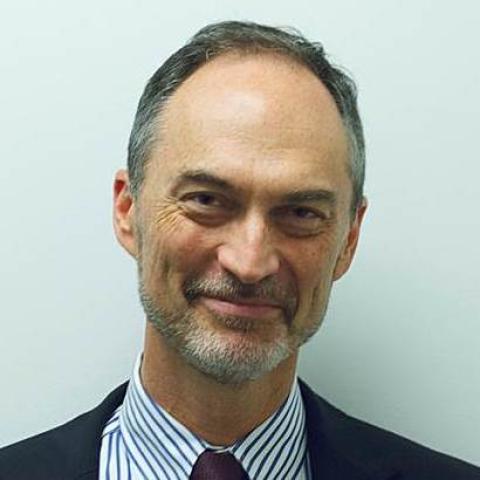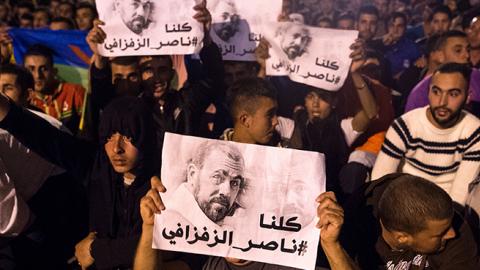Massive protests in Venezuela, Tunisia, Brazil, Morocco, and the Dominican Republic over the last few weeks have highlighted political graft around the globe, and the ensuing instability and violence that can result.
In Washington, the Trump administration has signaled an intention to continue the United States’ fight against corruption and kleptocracy abroad. The White House sent a letter to Congress pledging to “hold perpetrators of human rights abuses and corruption accountable,” in line with major anti-corruption legislation that Congress passed last December, the Global Magnitsky Act. Days later, Attorney General Jeff Sessions vowed to continue enforcement of the Foreign Corrupt Practices Act, which prohibits U.S. companies and individuals from bribing foreign officials. That message was particularly important, given that President Trump had previously called the FCPA a “horrible law.”
These signals matter. Systemic corruption and kleptocracy in other countries are not merely inconveniences or added costs to doing business. Rather, corruption undermines U.S. national security, and the United States should use all its available tools to combat and deter corrupt actors.
Transnational threats like terrorism, organized crime, and pandemic disease emanate from countries that fail to control corruption – where a police officer, judge, or customs or health official can be paid off to turn a blind eye. Large-scale corruption in procurement, concessions, and privatization of public assets drains national treasuries of revenue, leaving poor countries poorer, more vulnerable to conflict, and less capable of dealing with domestic and regional security threats. And at the state level, Russia uses corruption as a tool of foreign policy in its near abroad, to compromise or buy the loyalty of elites, and subvert political and economic institutions.
Foreign security forces, as in Iraq, Nigeria, and Ukraine, are hollowed out by embezzlement, favoritism, and extortion. As a result, those troops are often ill-equipped to fight terrorist organizations and external aggressors. Yet the United States’ current counter-terrorism approach relies heavily on partnerships with those very forces. More broadly, endemic corruption erodes the legitimacy of many governments with whom we seek to partner. Recruitment efforts by insurgent and terrorist groups, including ISIS and the Taliban, capitalize on legitimate grievances against government corruption.
For all these reasons, countering corruption and kleptocracy should be a U.S. foreign policy priority. The FCPA is only a small part of the legal arsenal needed to wage that fight, and could be expanded to cover not only the bribe giver, but also the bribe taker.
But most importantly we must curtail the anonymous ownership of assets, and do away with "anonymous companies" (so-called “shell” companies where the true beneficial owners are hidden). Criminals and corrupt government officials and businesses use anonymous companies – usually registered in Western, developed countries – to move and hide assets, launder money, and evade law enforcement. The true owners of these companies should be required to report to authorities their identity when incorporating as a company or legal entity. This simple transparency would make it much harder for corrupt officials to steal vast wealth from their populations.
By the same token, anonymous ownership of real estate must be stopped – as indeed the current administration has extended "geographical targeting orders" expanding ownership transparency to a number of cities. This should be generalized across the United States.
Given the current political environment and concerns about foreign influence over the U.S. government, we should tighten the enforcement and the law regarding foreign agents: The Foreign Agents Registration Act (“FARA”) needs more vigorous enforcement, as well as amending to close various loopholes.
More generally, we must preserve and build on the anti-corruption efforts of both the Bush and Obama administrations. Many agencies are engaged in fighting global corruption on the law enforcement side — the Justice Department’s Kleptocracy Asset Recovery Initiative, the FBI’s International Anti-Corruption Squads, and the Treasury Department’s Office of Foreign Assets Control, among others. Their hands could be strengthened. The State Department and U.S. Agency for International Development help support accountable, effective governing institutions, empower citizens to hold their governments accountable, and improve law enforcement bodies. There is opportunity for stronger coordination to improve information-sharing and cooperation across agencies. On the Hill, there is bipartisan awareness of the corruption/kleptocracy threat, and support for sustaining and improving agencies’ efforts.
Lastly but not least, the executive, in some cases, has a trump card that provides discretionary leverage: The United States often has considerable knowledge of where kleptocrats have stashed their wealth in the West, or can obtain that information. A few discreet words behind the scenes might considerably raise the stakes for elites to engage in such abuse of the global financial system.
The president’s warmth toward oppressive rulers like Duterte, Erdogan and al-Sisi has some around the world reading the tea leaves on U.S. motivation to fight corruption. Nevertheless, Sessions’ statement and the White House letter on Global Magnitsky suggest there are forces within the administration that could continue to push the anti-corruption agenda forward. The G20 Summit in July is a key opportunity for doing so. The administration should use this forum to publicly throw its support behind the global fight against corruption and kleptocracy.
Americans, and our interests around the world, will be safer for it.




















